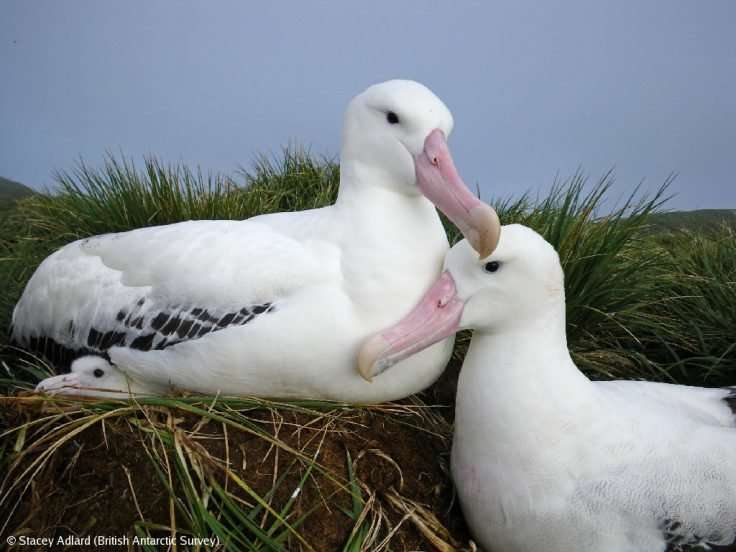Warming oceans could put seabirds out of sync with prey

Seabirds may struggle to find food for their chicks as they are unable to shift their breeding seasons as the climate warms, a new study suggests.
Rising sea temperatures in coming decades could create a mismatch between breeding periods and times when prey is most plentiful, researchers say.
The findings suggest that if prey species continue to shift their breeding seasons forward – as previous studies have shown in some regions – it could further threaten the survival of vulnerable seabirds such as puffins and albatrosses.
Breeding habits
A team from British Antarctic Survey along with colleagues at the University of Edinburgh and Centre for Ecology & Hydrology studied data on the breeding patterns of 62 seabird species between 1952 and 2016, as sea surface temperatures rose sharply.
They found that seabirds have not altered their breeding times in response to rising temperatures. Previous research has shown however that climate change has brought forward when many prey species – including squid, shrimp and small fish – reproduce.
Seabirds have much longer lifespans than their prey and do not reproduce until they are a few years old, which means it takes them many more generations to adapt, researchers say.
Widespread survey
The team assessed 145 bird populations at 60 locations across every continent. These included the British Antarctic Survey's sub-Antarctic Bird Island Research Station and the Centre for Ecology & Hydrology's field site on the Isle of May in the Firth of Forth.
The study, published in the journal Nature Climate Change this week (2 April 2018), received funding from the Natural Environment Research Council.
Lead author Katharine Keogan, at the University of Edinburgh's School of Biological Sciences, said:
"Many plants and animals now breed earlier than in previous decades, so our finding that seabirds haven't responded to changing environments is really surprising."
Dr. Sue Lewis, of the Centre for Ecology & Hydrology, said:
"This collaboration was a global team effort, bringing together many of the world's seabird scientists and the data they have spent many years collecting. Uniting these studies has allowed us to draw powerful conclusions about the climate response of one of the most vulnerable bird groups on the planet."
Journal information: Nature Climate Change
Provided by British Antarctic Survey


















